Solidaridad Regional Expertise Centre (SREC) is driven by its vision and mission, through which it seeks to address the challenges posed by India’s rapidly increasing population and an equally rapid reduction of its poverty, putting pressure on its land and water resources. Today, consumers want more food, more fibre for cloth and more feed for their animals. SREC believes that this ever-growing demand can be sustained only if the agricultural sector makes a transition towards smart and sustainable land and water use, increase its production by adopting efficient processes, coupled with less pollution, greater precision in the use of fertilisers and pesticides, and a reduction in the use of water and energy.
SREC is working together with small farmers, workers, local authorities, private sector and research institutes as a catalyst for improved food production, a safer workplace, access to clean water, and a better income.
SREC Centre is a Charitable Trust established in December 2008, registered under the Indian Registration Act, 1908 and 80 G & 12 AA of The Income Tax Act, 1961. Wherein we,

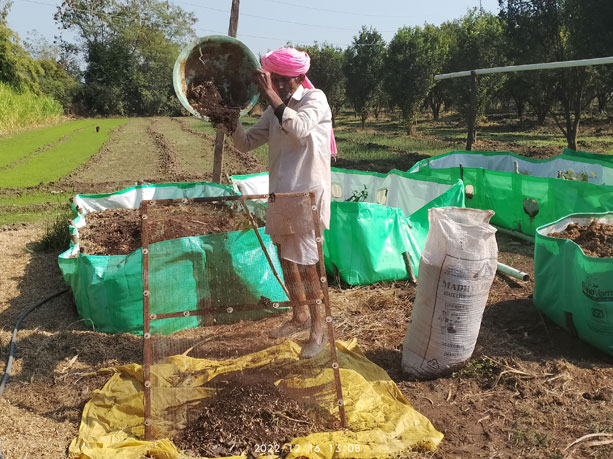
Sixty-five-year-old Kanwar Lal of Narwal village in Agar Malwa district of Madhya Pradesh had been practicing chemical intensive farming on his 8-acre land for several years read more
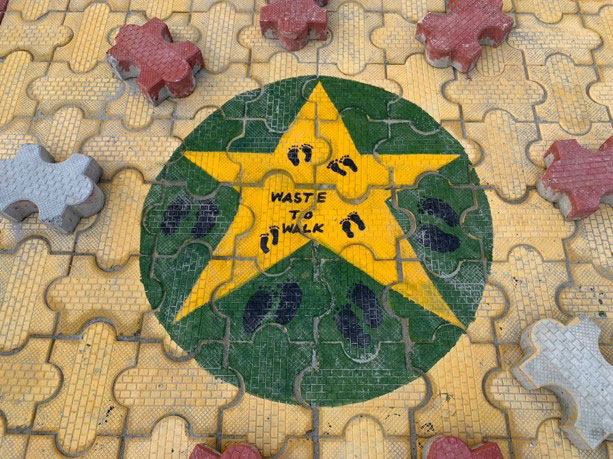
How one of the largest leather clusters in India is turning to sustainability, one block at a time, with Solidaridad Regional Expertise Centre’s ‘Waste to Walk’ read more
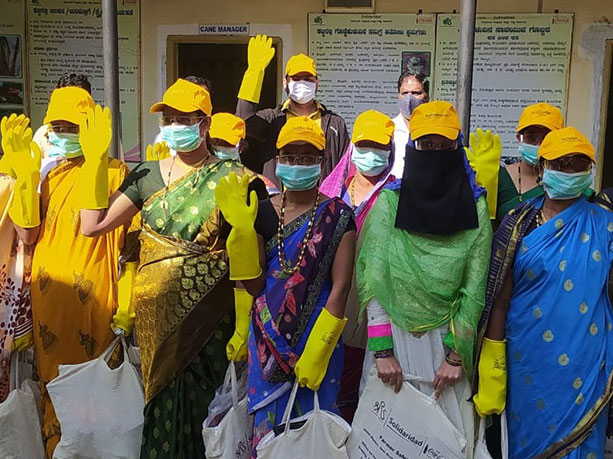
Forty-two-year-old Indira Kadam is an anganwadi worker in Munoli village in Belagavi district of Karnataka in southern India. A single woman, she read more
Issue/Volume: 29/02

In May, kharif crop preparation took centrestage, as we helped cotton farmers in Maharashtra understand good practices in land management, bed preparation, seed selection, sowing, and more. We recently also signed an important MoU with AVT Group to train 300 women in the leather sector in the practice of green, circular waste-management practices. In Madhya Pradesh, we laid the groundwork for form- ing agriculture labour forums to empower farmers in various ways. We also partici- pated in a significant dialogue and a workshop—one on driving change in the seeds sector, the other on combating climate change in agriculture.
Happy reading!

MoU Unveils Partnership to Empower Women in the Leather Sector
On World Leather Day 2025, a Memorandum of Understanding (MoU) was signed between A. V. Thomas Leather Private Limited (AVT Group) and Solidaridad Regional Expertise Centre, India, in Chennai.The agreement aims to train 300 women in green and circular waste-management practices, with a focus on enhancing their technical knowledge and promoting income-generating initiatives for actors across the leather supply chain, including shop-floor workers.The initiative is designed to upskill women by providing them with practical, industry-relevant training—ultimately improving their employability, supporting entrepreneurship, and enabling dignified livelihoods in the leather industry.
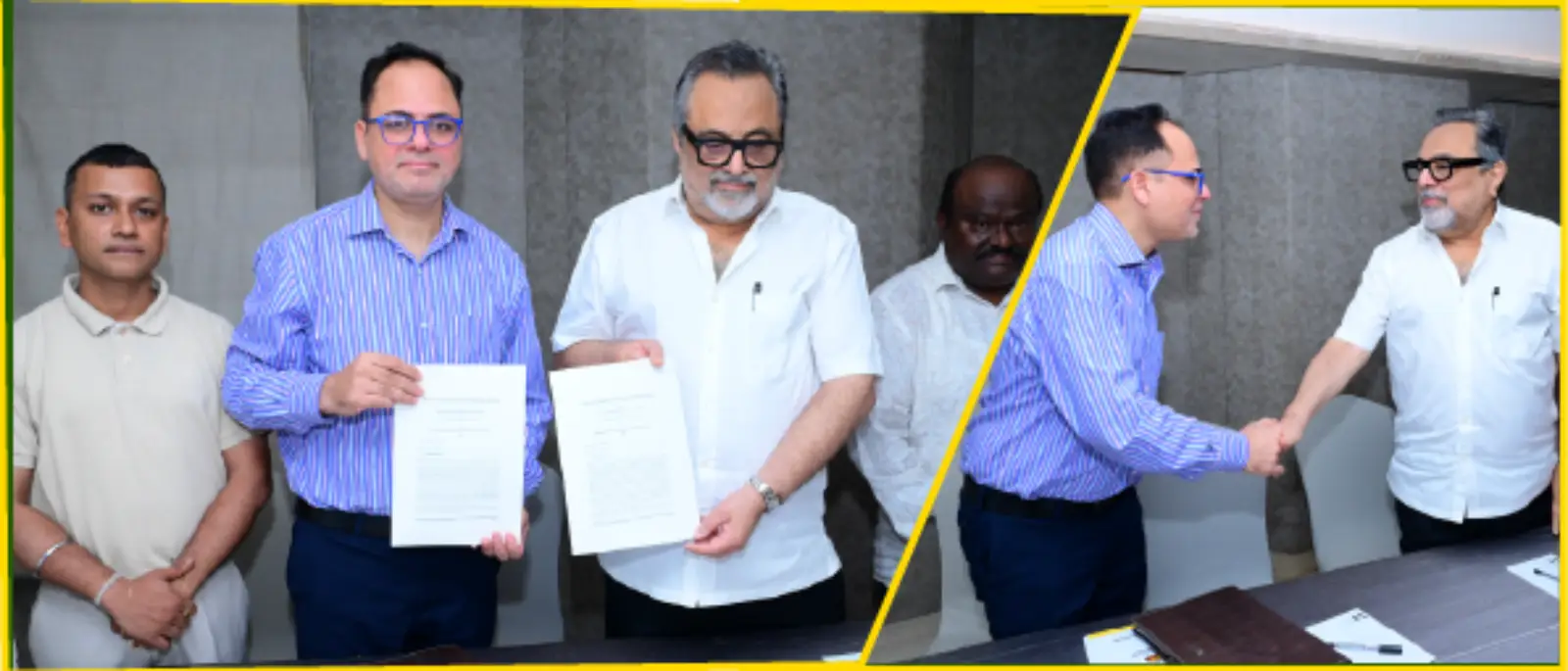
Solidaridad Efforts in the Leather Sector Highlighted at MoU-Signing Event
At the MoU-signing event, Tatheer Zaidi (Asia Head, Pollution Management in MSMEs, Solidaridad) shared an overview of Solidaridad’s long-standing work in the leather sector. He emphasized the organization’s commitment to sustainability, inclusivity, and creating equitable opportunities for women. Heerak Jyoti Mahanta from Solidaridad Regional Expertise Centre gave a detailed overview of the MoU and addressed questions from attendees, explaining the structure, goals, and expected outcomes of the training programme.
The event was attended by dignitaries and senior members from the AVT Group, including Habib Mirza Altaf Hussain (Chief Executive of A. V. Thomas Leather Private Limited). He acknowledged the importance of inclusive workforce development, and appreciated Solidaridad’s efforts to support women in becoming both skilled professionals and entrepreneurs.
A carbon-smart portrait—crafted from 2 kg of discarded leather dust—was presented to Hussain. The framed portrait was made of eco-collagen regenerative sheets, the production of which is associated with:
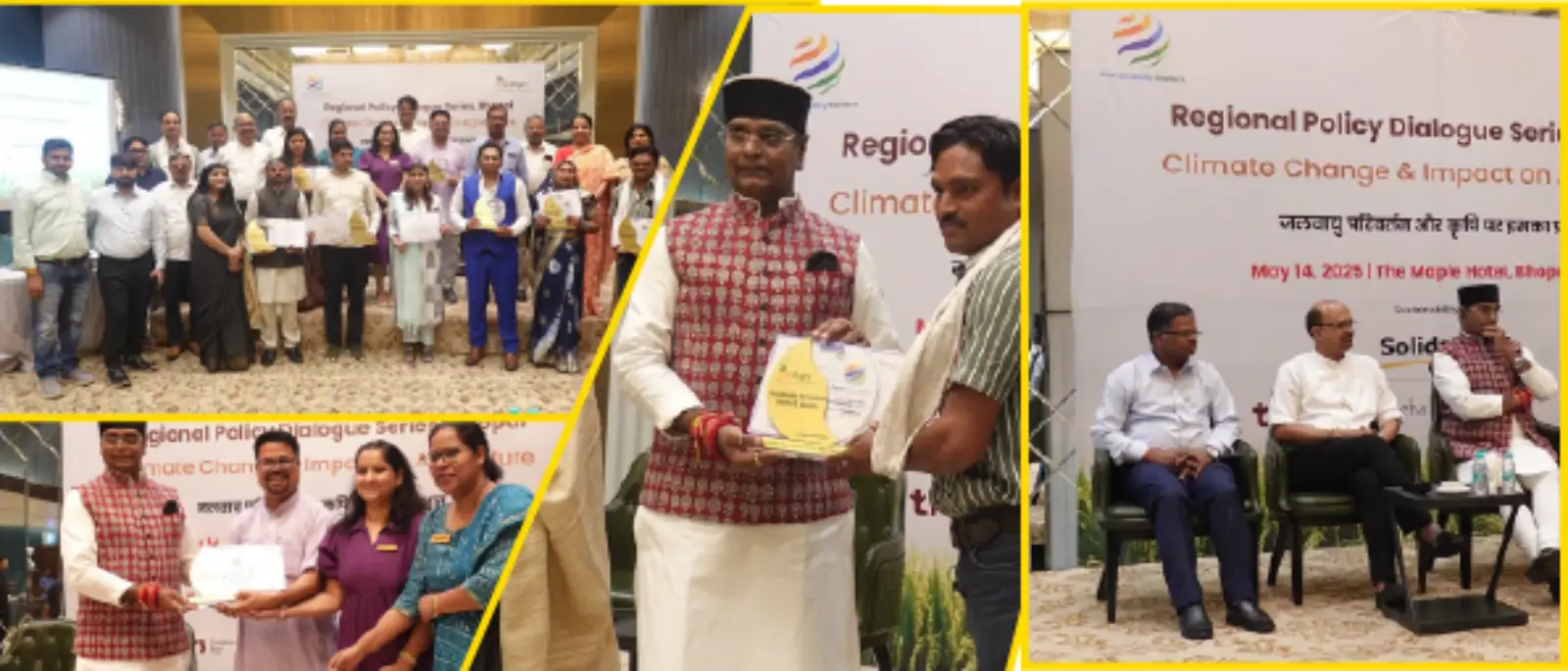
Bringing Together a United Front against Climate Change
Solidaridad participated as the Sustainability Partner in the Regional Policy Dialogue on 'Climate Change & Its Impact on Agriculture' organized by Sustainability Matters and IndiAgri on May 14, 2025, in Bhopal. The event served as a powerful call to action, bringing together different stakeholders to address the urgent intersections of climate change, agriculture, and sustainability.
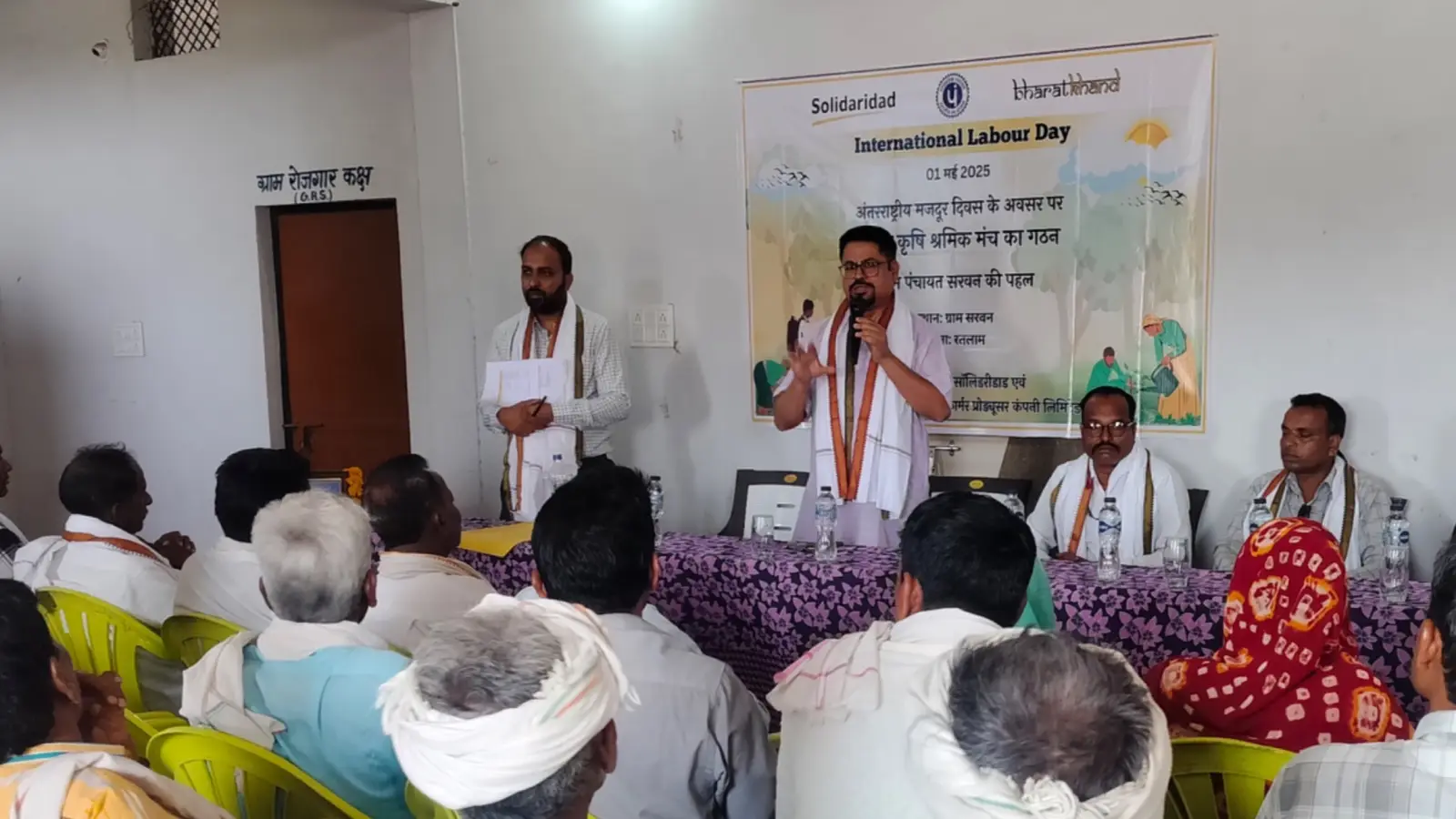
Bharat Krishi Shramik Manch Champions Rights and Support Systems for Agricultural Workers
To strengthen support systems for agricultural workers at the grassroots, Solidaridad and the Bharatkhand Consortium of Farmer Producer Company Ltd. have initiated the formation of agriculture labour forums (titled Bharat Krishi Shramik Manch). The initiative was launched on 1 May, aligning with the International Labour Day, to recognize and empower the rural workforce that drives the agricultural sector.
Since its launch, over 110 labour forums have been formed across different gram panchayats in Madhya Pradesh. More are in the pipeline as we aim to reach full coverage across priority regions.
The Manch will provide a forum for agricultural labourers and farmers to voice their problems, offer suggestions, and seek solutions. It also intends to bridge the gap between labourers and farmers in the farming sector, making them aware of their rights, social security benefits, and workplace safety measures.
The activities of the Manch will be geared towards the fulfillment of the following outcomes:
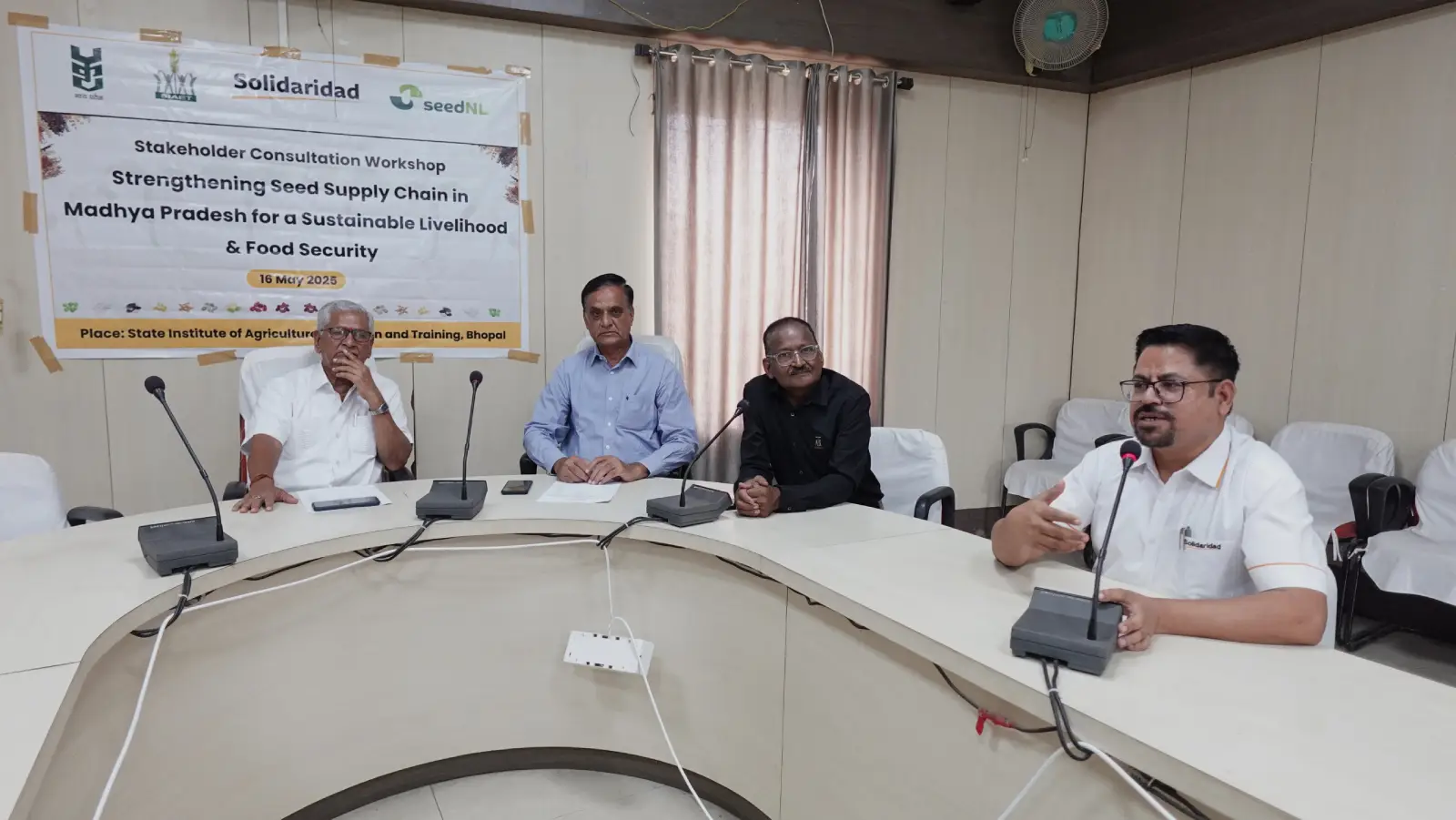
Driving Sustainable Change in the Seeds Sector
Seeds are the foundation of productivity, food security, and sustainable rural livelihoods. Recognizing the need for systemic reforms and collaborative action, a Stakeholder Consultation Workshop was held on 16 May 2025 in Bhopal, Madhya Pradesh. The workshop was part of a Solidaridad initiative, in partnership with SeedNL, under the Strengthening Seed Supply Chain in Madhya Pradesh for a Sustainable Livelihood & Food Security programme.
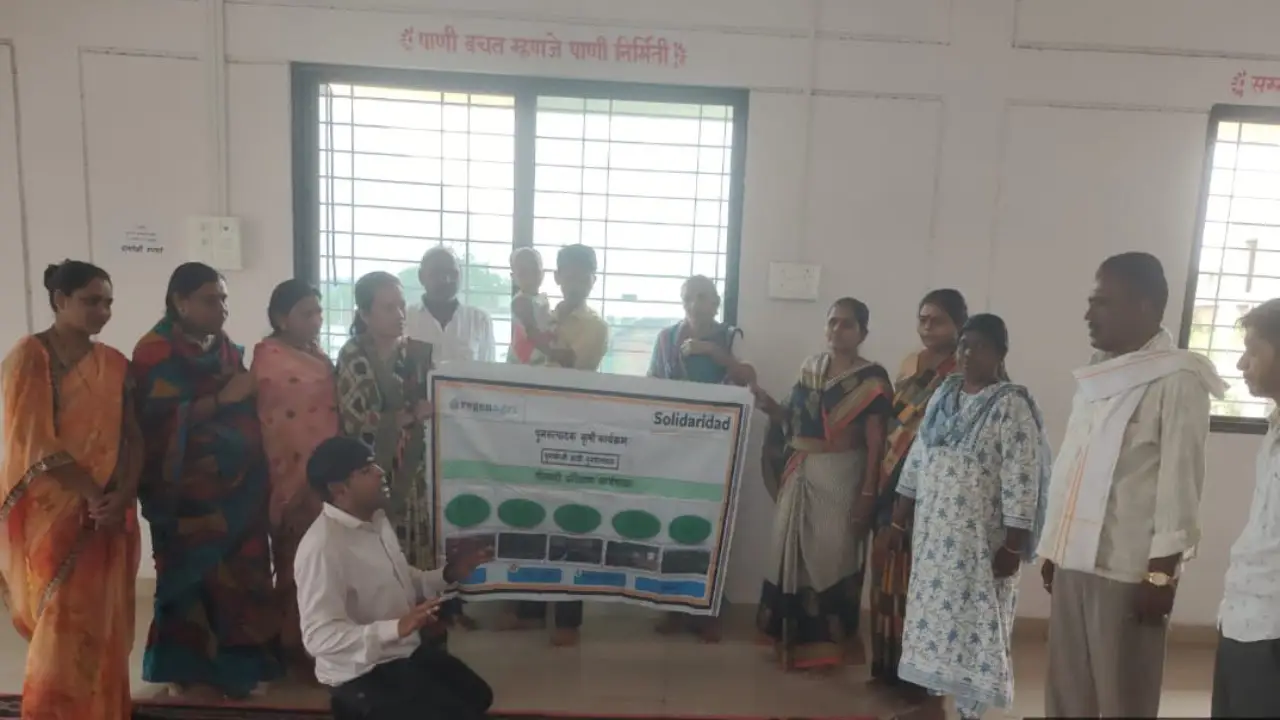
Preparing for the Kharif Season
Farmers, despite their busy schedules, can benefit from village-level capacity-building training sessions in several ways.
Currently, Solidaridad is conducting a series of such sessions on kharif crop planning. Earlier in May, we conducted a number of farmers’ training sessions in different regions of Maharashtra: Maragsur village and Malegaon village in Nagpur district, Donduda village in Wardha district, and Dabhada village in Amravati district. During these sessions our experts guided and instructed farmers on land and bio-input preparation. Further discussions took place on aspects such as seed selection, seed germination tests, seed treatment, cotton sowing, measures to take to address excess rainy or dry spells, and avoiding pink bollworm attacks.
This month, a workshop was also organized at the Solidaridad State Resource and Training Centre in Hinganghat block, Wardha district. Held in convergence with the district agriculture department, the workshop aimed at supporting cotton farmers from nearby villages to take up regenerative agriculture. Officials from the agriculture department enquired about farmers’ practices and cropping patterns, and gave valuable tips on land preparation, seed selection, sowing, gap filling, integrated pest and nutrient management, and more.
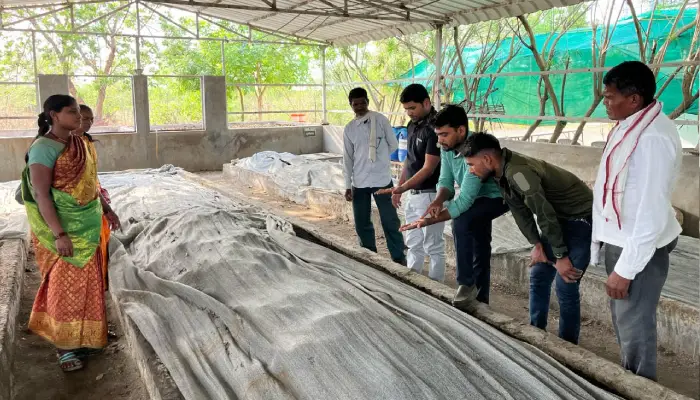
FFS and Exposure Visit Train Farmers in Water-Efficient Practices and Integrated Farming
On 18 May 2025, Solidaridad conducted a farmers’ field school (FFS) at Selu village in Nagpur district. During the FFS, guidance was provided on water-efficient farming practices, regenerative agriculture, and the importance of farmer producer organizations in the rural economy. The training also focused on pre-kharif planning activities such as land preparation, seed selection, germination, and treatment.
After the session, farmers were taken for an exposure visit to Solidaridad’s State Resource and Training Centre at Kalmeshwar in Nagpur district. Farmers were introduced to various demonstration plots that showcased vermicompost, varietal trials, and livestock integration. There, the farmers received useful information on bio-input preparation and their application in agriculture.
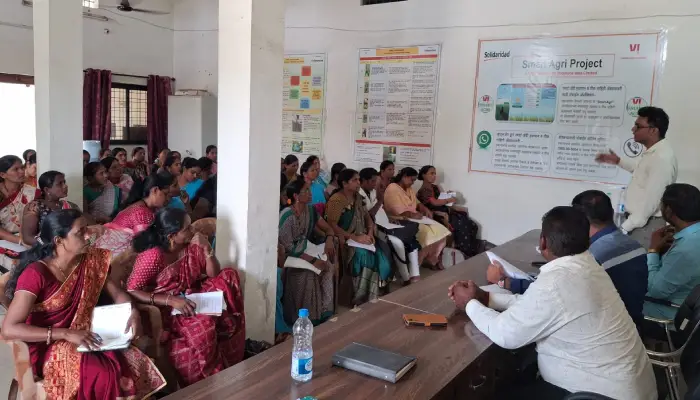
Convergence Training in Wardha Equips Women SHG Farmers on Good Practices and Running Enterprises
On 8 May 2025, a training session was conducted in convergence with the Maharashtra State Rural Livelihood Mission at Solidaridad’s State Resource and Training Centre in Hinganghat block in Wardha district. Women participating in self-help groups (SHGs) attended the session. It focused on educating women and SHG members regarding good agricultural practices and small-scale enterprises involving the preparation and sale of bio inputs.
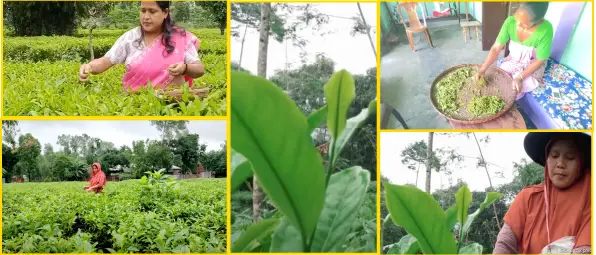
This year, International Tea Day, was observed with the theme of “Tea for Better Lives”, highlighting tea’s significant contributions to livelihoods, sustainability, and well-being. To mark the occasion, we at Solidaridad came up with an online campaign highlighting individual and collective stories of resilience, entrepreneurship, and dedicated contributions of women in the tea sector.
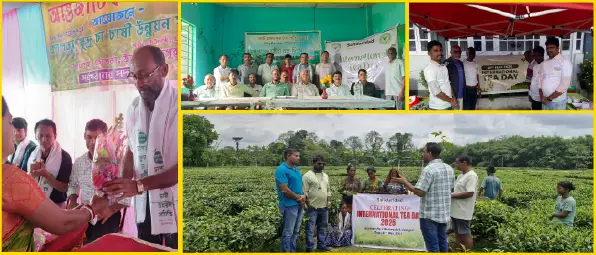
On the ground, we celebrated International Tea Day in the Tinsukia and Udalguri districts in Assam, the Nilgiris district in Tamil Nadu, as well as the Uttar Dinajpur and Jalpaiguri districts in West Bengal. The day saw several tree-planting activities, with a progressive farmer planting as many as 10 high-value mahogany trees on their tea plantation.
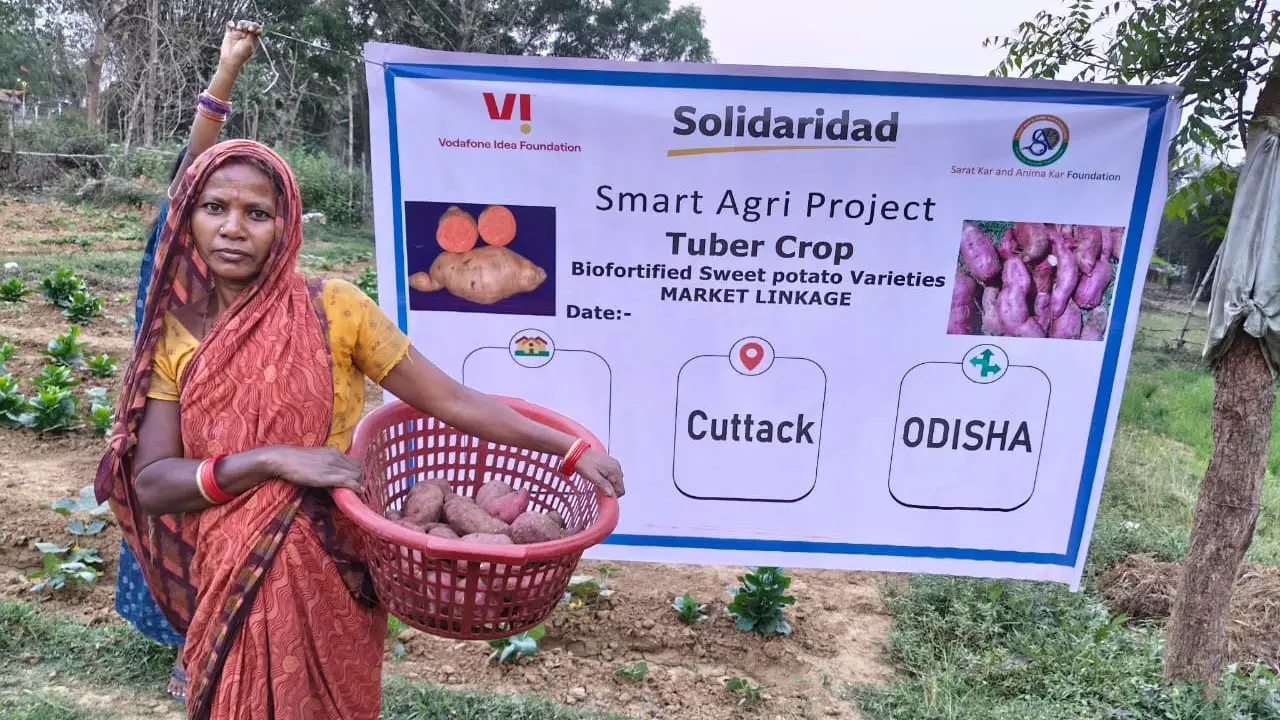
Realizing the potential of tuber crop cultivation,
Tikili Pradhan, a resident of Kamanga village in Odisha’s Cuttack district, used to support her family of four by growing vegetables on her 0.6-acre farm.
Five months ago, she was introduced to tuber-crop cultivation by the field staff of Solidaridad and the Sarat Kar and Anima Kar Foundation. Impressed by its potential, Tikili decided to cultivate sweet potatoes on 0.12 acres of land. She procured the biofortified sweet potato vines (rich in beta-carotene and vitamin A) from the Central Tuber Crops Research Institute. And, in accordance with the package of practices recommended by the Smart Agri Project, she used jeevamrut, ghana jeevamrut, vermicompost, neem cake for nutrient management, and applied neem oil and sanjeevani for pest management in the field.
In just over three months, Tikili harvested around a quintal of sweet potato, selling it for ₹4,500 in her neighbourhood. Encouraged by the additional income earned and the short cycle of cropping, she now intends to increase the area under sweet potato cultivation. For small farmers such as Tikili, ensuring linkage to markets can guarantee better prices and further motivate them to take up tuber crop cultivation in a sustainable way.
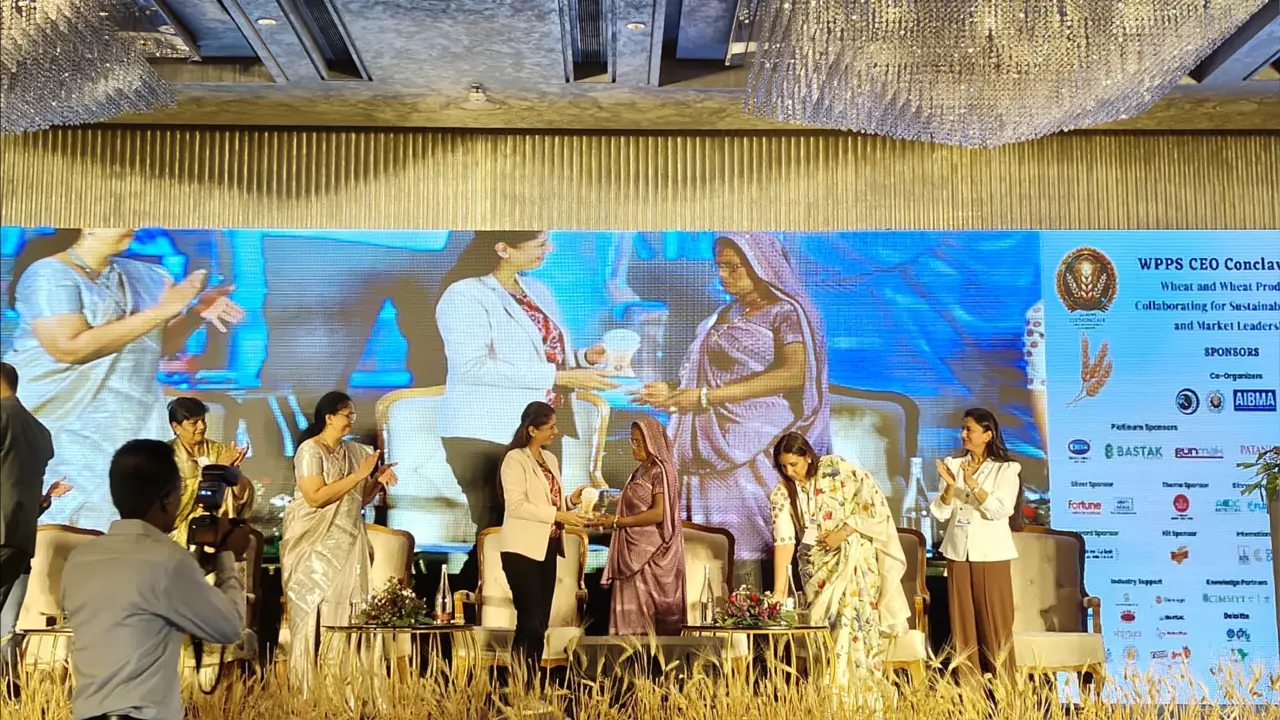
A torchbearer of regenerative agriculture
Hailing from Dalauda village in Madhya Pradesh’s Mandsaur district, Lacchi Bai Jadav has emerged as a symbol of regenerative, self-reliant farming. As a kisan mitra (friend of the farmers), Lacchi’s efforts to promote sustainability and regenerative agriculture have made her an inspiration in her community.
With Solidaridad’s guidance and support, she has mastered the science of preparing bio-inputs such as jeevamrut and ghana jeevamrut, and has set up her own bio-input unit on her farm. As a result, the initiative has improved local access to organic fertilizers, and reduced the villagers’ dependence on chemical inputs. On her farm, the adoption of regenerative practices and the use of an improved variety of seeds has helped her increase her wheat yield from 28–30 quintals per acre to 35 quintals, reducing production costs and enhancing quality of yield in the process.
Lacchi is also a member of the Sitamau Unnat Krishak Farmer Producer Company, educating fellow farmers on the benefits of FPOs and encouraging them to join the collective movement for better market access and shared growth. Her contributions to the cause of sustainability and regenerative agriculture were recently honoured at the National Conclave on the Role of Women in Wheat Innovation, organized by the Wheat Products Promotion Society, held earlier this year in Indore.
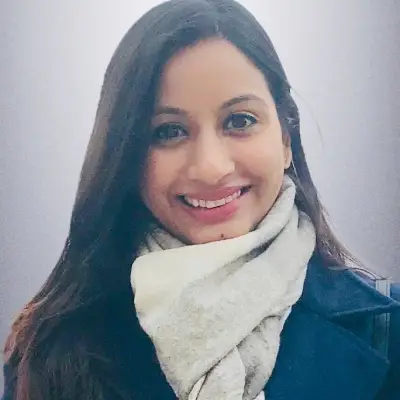
Ms. Satabdi Kashyap is a seasoned professional with twelve plus years of experience in research, monitoring, and evaluation at both international (Asia and the African region) and national levels. She brings deep expertise in Data Driven Strategic Planning, Technical Support to Government (Ayushman Bharat School Health and Wellness Program and Universal Immunization Program), Program Implementation, Collaborating, Learning and Adapting (CLA), Data Analysis, Program Evaluation, and Strategic Information Management. She holds a Master’s Degree in Statistics from Dibrugarh University, Assam.
She has worked extensively with global development partners, including USAID, the Bill & Melinda Gates Foundation (BMGF), and UNICEF. She has led and contributed to large-scale quantitative and qualitative surveys, developed robust monitoring and evaluation frameworks, and analysed complex datasets to guide program strategies and decision-making.
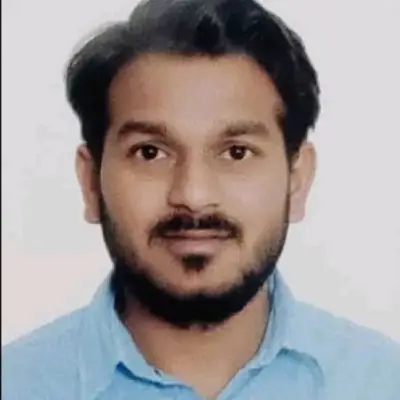
Jeeshan Khan has joined as Senior Programme Officer on 16 May at Panipat. He is a textile engineer with over 9 years of experience in the textile industry, specializing in chemical processing, sustainability audits, and resource efficiency. He has done Bachelor of Engineering (B.E.) in Textile Chemical Processing from The Maharaja Sayajirao University of Baroda and a Diploma in Textile Chemistry from Govt. Polytechnic, Kanpur. He is also a Senior Technician Member of the Institution of Engineers, Kolkata.
Previously, he has worked with reputed textile organizations such as Reliance Industries, Arvind Limited, Alok Industries, and Raymond Ltd. Prior to joining Solidaridad, he served as a Technical Officer at the Northern India Textile Research Association (NITRA), linked with Ministry of Textiles, Govt. of India, where he contributed to national-level projects on pollution prevention, water and energy conservation, and third-party audits.
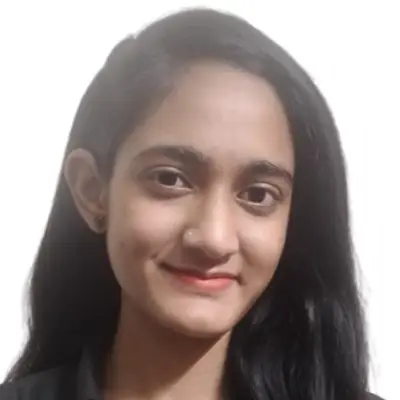
Ms. Preeti Latwal joined us as a Finance Officer.Preeti comes with more than three years of work experience in the development sector. She holds a B.Com degree from Mata Sundri College for Women, University of Delhi and currently pursuing MBA in Finance from distance learning mode. Previously, she was working as an Accountant with Pratham Education Foundation and has started her career with The American Indian Foundation Trust as an Account Assistant